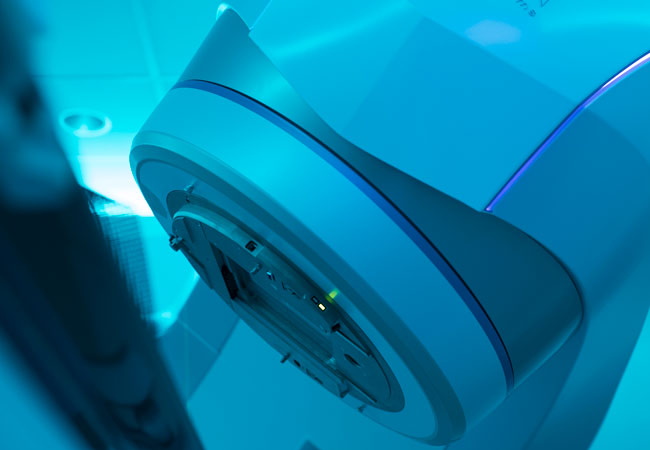Parker Institute for Cancer Immunotherapy awards $2.75 million to early career researchers at top centers
The Parker Institute for Cancer Immunotherapy (PICI) recently announced six early career researchers awards through the Parker Scholars, Parker Bridge Fellows and Parker Senior Fellows programs. They are receiving a total of up to $2.75 million in funding to take bold risks and progress their research in profound ways, alongside 14 current awardees and PICI's constellation of immunotherapy experts.
PICI selected the early career researchers from leading research institutions in its network, including City of Hope, Memorial Sloan Kettering Cancer Center, the Perelman School of Medicine at the University of Pennsylvania, the Tisch Cancer Institute at Mount Sinai, University of California, Los Angeles and University of California, San Francisco.
Along with financial support, these scientists will have the opportunity to collaborate with pioneers in the field through retreats, workshops and events. They will also receive access to cutting-edge tools and technologies, as well as early data from clinical trials and pre-published papers, all to guide and propel their research.
"The immuno-oncology field has incredible potential to make cancer curable, and these early career researchers will help PICI transform the way cancer research is done," said Lisa Butterfield, Vice President, Research and Development at PICI. "They bring open minds and fresh approaches to the toughest challenges in the field, which are grounded in their early training in some of the best labs in the country. PICI's model gives them a collaborative environment where they can work across institutions to move big, bold ideas forward more quickly."
Meet this year's awardees and learn about their research focuses:
- Cansu Cimen Bozkus, Ph.D., Parker Bridge Fellow
at the Tisch Cancer Institute at Mount Sinai, is bridging basic and translational science working with scientists and clinicians. She is focused on using immune responses against tumor specific antigens to develop new therapies. - Sharareh (Sherri) Gholamin, M.D., Ph.D., Parker Scholar
at City of Hope, is developing new treatment approaches for tumors that are resistant to current immunotherapies, particularly with the gut microbiome. She will explore new immunotherapy combinations with CAR T-cell therapies to overcome resistance in current treatments for patients with brain cancer. - Kelly Kersten, Ph.D., Parker Scholar
at the University of California, San Francisco, focuses on how anti-tumor T-cells behave and become dysfunctional in cancer. In particular, she wants to understand how myeloid cells, and more specifically tumor-associated macrophages, are involved in the onset of T-cell exhaustion. Her ultimate goal is to identify novel therapeutic approaches to target macrophages to reinvigorate T-cells to fight cancer. - Sydney Lu, M.D., Ph.D., Parker Bridge Fellow
at Memorial Sloan Kettering Cancer Center, uses checkpoint inhibitor therapies to tackle hard-to-treat cancers like lung, bladder and kidney. He plans to continue his work to make cancer cells more recognizable to the immune system. - Cristina Puig Saus, Ph.D., Parker Senior Fellow
at the University of California, Los Angeles, is focusing on how T-cells respond to mutations in tumors after checkpoint inhibitor treatment. She aims to unpack the similarities and differences of T-cell responses in patients who are or are not responsive to treatment, and then use these findings to design new, more effective treatments. - Jennifer Wu, Ph.D. candidate, Parker Scholar
at the Perelman School of Medicine at the University of Pennsylvania, is developing in vitro (cells in a dish) models to understand why T-cells become exhausted and why current therapies can only partially reverse exhaustion. Since immunotherapy does not yet work for all patients, understanding exhaustion, why it develops and how to reverse it, could help more patients. With PICI, she will build on this model and use it to discover novel therapies.
While the awardees will receive a substantial amount in funds, one of the new Parker Bridge Fellows at Mount Sinai, Cansu Cimen Bozkus, described the breadth of the programs best, "It's more than just a grant. Financial support is a great help in many ways but being involved with the community is the real privilege about PICI's program. It's the network of peers and the pioneers collaborating together at the forefront of the immunology field that I'm most excited about."
Sydney Lu, new Parker Bridge Fellow at Memorial Sloan Kettering, also shared similar sentiments, "PICI has assembled an exceptional team of directors, mentors and scientists. By being part of the PICI network, I'm eager to get a bird's eye view of the most cutting-edge work happening in immunotherapy, while also exchanging ideas and getting input on my research to accelerate it forward."
